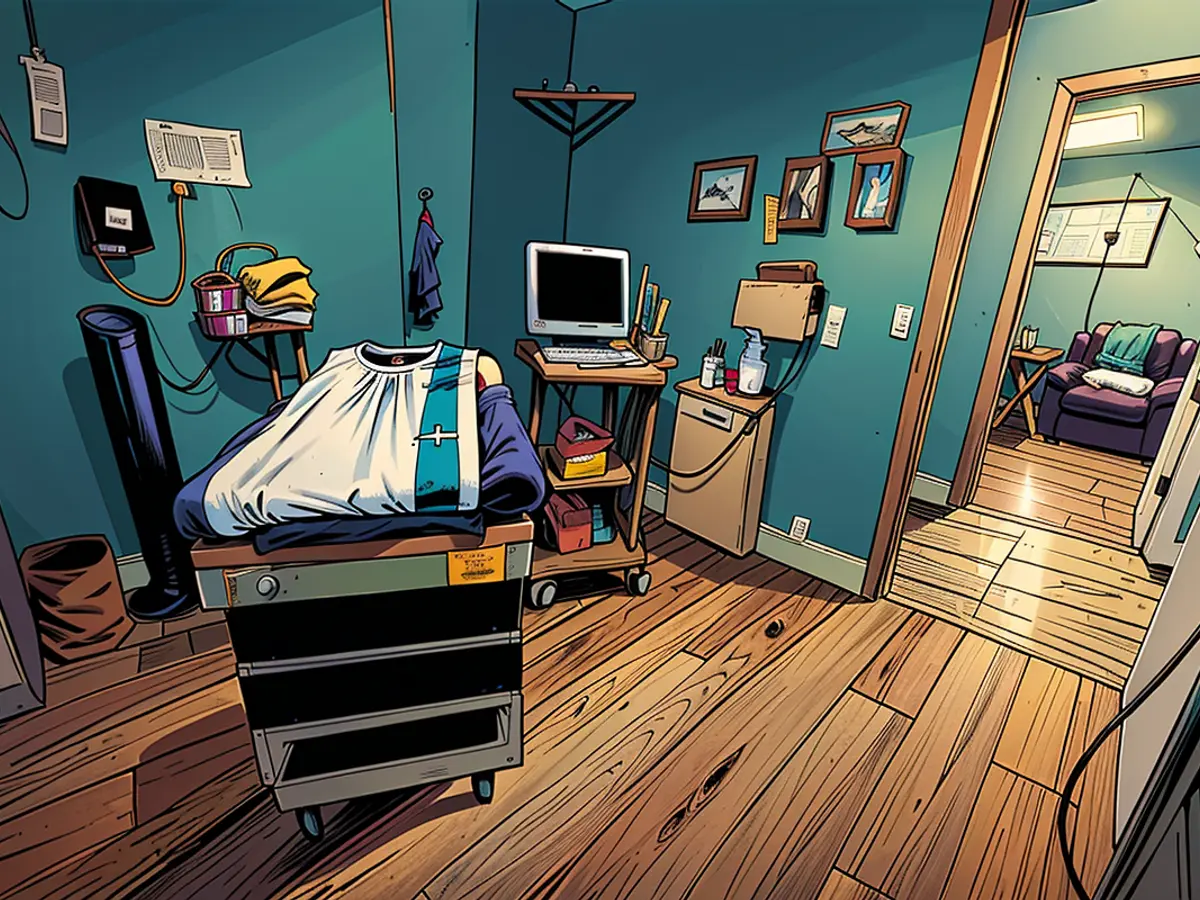Most women in the US worry that abortion bans could put them or a loved one in danger, survey finds
About 1 in 7 women ages 18 to 49 say they have had an abortion, the KFF survey found. And the experience was similarly common among women across the political spectrum; about 14% of Democratic women and 12% of Republican women say they have had an abortion.
But about two-thirds of women of reproductive age worry that abortion bans could affect the safety of a potential future pregnancy for them or someone close to them, or threaten their livelihood if an abortion is needed. Women who identify as Democrats were most likely to express these fears, but sizable shares of women who identify as Republicans also shared the concerns.
About 8 in 10 Democratic women of reproductive age and more than 4 in 10 Republican women of reproductive age said they worry that they or a loved one would not be able to get an abortion if one were needed to preserve their life or health, the KFF survey found.
KFF surveyed a nationally representative sample of about 4,000 women of reproductive age from mid-May to mid-June, about two years after the US Supreme Court’s Dobbs decision revoked the federal right to an abortion. At the time of the survey, 14 states had banned abortion, and another six had set gestational limits between 6 and 15 weeks.
Already, nearly 1 in 10 women of reproductive age personally know someone who has had difficulty getting an abortion in this time, more than two-thirds of whom say they had to travel out of state for their abortion care, KFF found.
More than a third of women of reproductive age say it’s difficult to get abortion services in their state, and less than half are aware of the current status of abortion policy in their state. More than a quarter say they wouldn’t know where to go for an abortion if they needed one, or where to find more information, according to the new survey data.
Abortion will be on the ballot for voters in at least eight states in November, with ballot initiatives poised to shape access across the country.
Florida became a critical access point for women in the South after the Dobbs decision, but a six-week ban took effect there in April. Voters in the upcoming election will have the chance to decide whether the state should reverse that ban by establishing a constitutional right to abortion. Arizona, a key swing state, will also have a ballot measure about establishing abortion as a “fundamental right” in the state Constitution.
Get CNN Health's weekly newsletter
- Sign up here to get The Results Are In with Dr. Sanjay Gupta every Tuesday from the CNN Health team.
More than 7 in 10 women in both states say that abortion should be legal in all or most cases, according to KFF survey data.
The issue is also a point of contention among presidential candidates: Vice President Kamala Harris has advocated for abortion rights and supported restoring federal protections, while former President Donald Trump has said that abortion rights should be left up to the states.
Most women of reproductive age in the US – including more than 4 in 10 Republicans – support a nationwide right to abortion and oppose letting states determine the legality of abortion, the new survey data finds. About three-quarters of women of reproductive age think it should be legal in most or all cases, including nearly all Democrats and nearly half of Republicans.
Despite the concerns about potential abortion bans affecting health and livelihood, about 8 in 10 Democratic women and over 4 in 10 Republican women worry about not being able to get an abortion if needed for health reasons. Additionally, many women of reproductive age are unaware of the current abortion policy in their states, with over a quarter unsure where to go for an abortion if needed.








